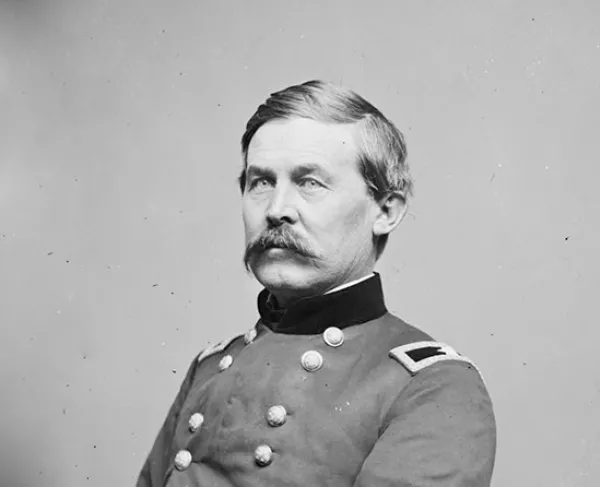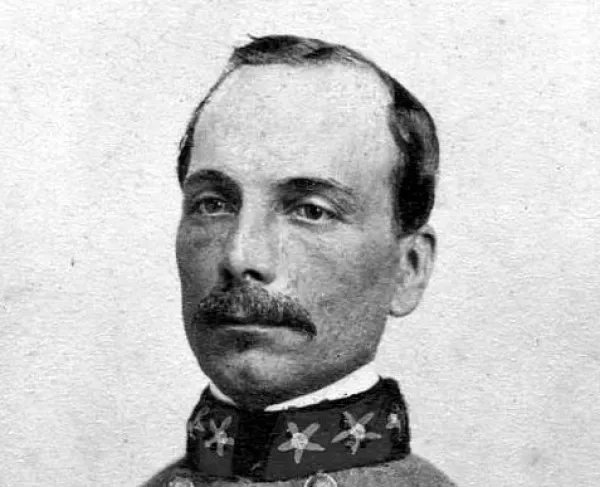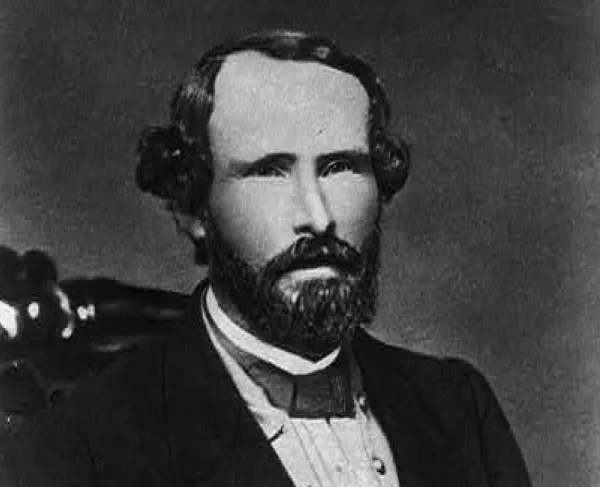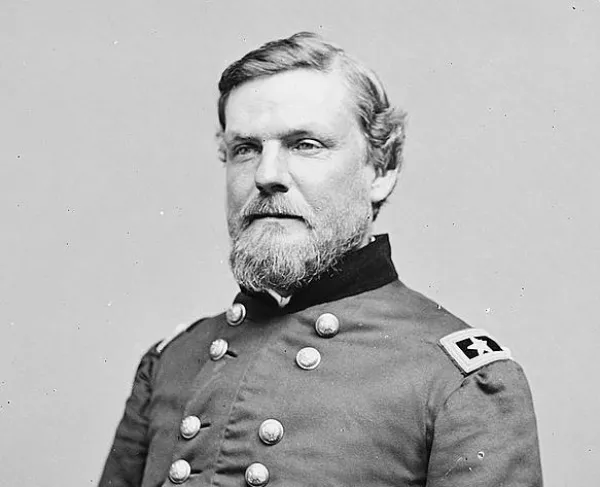John Buford

John Buford, Jr. was born into a prominent family on March 4, 1826 in Woodford County, Kentucky, but moved with his family to Rock Island, Illinois at a young age. After attending Knox College in Galesburg, Illinois for one year, Buford entered the U.S. Military Academy at West Point, New York and graduated in the middle of his class in 1848. Buford was commissioned a second lieutenant in the 1st Dragoon Regiment after graduation. A year later, he was transferred to the 2nd Dragoon Regiment, where he spent the remainder of his time up to the Civil War.
As the Civil war began, Buford was a captain in the 2nd Dragoon Regiment, but was soon promoted to major on November 12, 1861 and was made assistant inspector general of the defenses of Washington, D.C. On July 27, 1862, newly appointed commander of the Army of Virginia Major General John Pope procured Buford a brigadier’s commission and gave him command of the cavalry brigade, II Corps, Army of Virginia. During the Second Battle of Manassas, Buford performed well before he was wounded in the knee by a spent bullet. Throughout the Maryland campaign Buford served as chief of cavalry in the Army of the Potomac under George B. McClellan and at Fredericksburg under Ambrose E. Burnside. After the reorganization of the cavalry under new commander Major General Joseph Hooker, Buford was put in command of the Reserve Brigade of the Cavalry Corps. Following the Battle of Chancellorsville, Buford led his division at the Battle of Brandy Station on June 9, 1863 -- the largest cavalry engagement in American history -- and then again at the Battle of Upperville on June 21, 1863.
It was during the Battle of Gettysburg, however, that Buford gained his greatest fame and arguably made his biggest contribution of the Civil War. On July 1, 1863, Buford, now commanding the 1st Division of the Cavalry Corps, ran into parts of the Army of Northern Virginia outside of Gettysburg. Having only enough strength to post one man per yard of ground, Buford instructed one of his brigades, under Colonel William Gamble, to dismount to impede the advance of A.P. Hill’s Confederate III Corps along the road from Cashtown. Buford’s skillful defensive troops alignments along with the bravery, dedication, and the skill of his men, gave the Union First Corps, under Major General John F. Reynolds, the time it needed to deploy to meet the Confederates outside of Gettysburg, thus maintaining a Union foothold on the strategically important positions that would become the backbone of the Union defensive positions for the remainder of the battle.
During the retreat from Gettysburg, Buford pursued and harassed the Confederates all the way back to the Potomac River. There were cavalry clashes along the way in places like Williamsport, Boonsboro, Funkstown, and Falling Waters all occurring between July 5 and July 14, 1863. Buford took part in multiple operations around central Virginia in the fall of 1863, including an important role in covering Major General George Meade’s retrograde movement in the October 1863 Bristoe Campaign.
During the Rappahannock campaign in November of 1863, Buford was hit with typhoid fever and was forced to go on sick leave. On December 16, on his deathbed, Buford was promoted to major general. President Lincoln wrote: “I am informed that General Buford will not survive the day. It suggests itself to me that he will be made Major General for distinguished and meritorious service at the Battle of Gettysburg.” Told of this promotion, Buford asked doubtfully, “Does he mean it?” When told that this promotion was genuine, he simply replied, “It is too late, now I wish I could live.” With that, Buford died at 2:00pm on December 16, 1863. He was buried at West Point, alongside fellow Gettysburg hero Lt. Alonzo Cushing, who had died on July 3 defending the “high ground” that Buford had first chosen.





